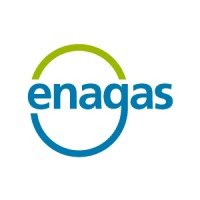More hydrogen developments in Brazil
In Brazil, the commercial use of hydrogen as fuel in transport is getting closer to becoming a reality.

Companies in Rio de Janeiro have formed a partnership to produce hydrogen-powered buses next year.
The Alberto Luiz Coimbra Institute of Graduate Studies and Engineering Research in the Federal University of Rio de Janeiro, Coppe-UFRJ, would be responsible for developing the prototypes.
The electric-hydrogen hybrid bus developed at Coppe’s LabH2 was initially launched in 2010. The vehicle had its second-generation launched during Rio+20, promoted by the United Nations (UN), in 2012, in Rio de Janeiro.
The 3rd generation of Coppe buses, which was developed in partnership with Furnas and Tracel, was launched in 2016 and transported athletes in Vila Olímpica during the Olympic Games in Rio de Janeiro. With the new configuration, the bus now has a range of 330 km and meets the requirements for urban vehicles in Rio de Janeiro. Currently, the 4th generation of buses is under development with a capacity to transport 100 people.
Professor Paulo Emílio de Miranda at Coppe/UFRJ, who is the coordinator of Coppe’s Hydrogen Laboratory (LabH2) and the president of the Brazilian Hydrogen Association (ABH2), explained, “Hydrogen will also be important for us to positively impact transport systems, to increase the value chain of waste and management biomass, as well as to decarbonize the so-called difficult CO2 abatement sectors, such as cement, steel, ceramics and mining.”
Meanwhile, National Service for Industrial Learning (Senai) and CTG Brasil has inaugurated clean energy innovation habitat in Rio Grande do Norte, Brazil. CTG Brasil is the first company to inaugurate its Innovation Habitat at the Senai Institute for Innovation in Renewable Energy (ISI-ER), in Natal (RN). This is part of a major partnership with Senai to boost research and innovation projects focused on the Brazilian electricity sector. CTG Brasil’s Clean Energy Innovation Habitat will find partnerships and attract solutions focused on renewable energy sources for new businesses, energy commercialisation and the green hydrogen value chain.
Moreover, Senai and CTG Brasil also launched the Public Call – Green Hydrogen Strategic Mission for prospecting and evaluating technical, commercial and technology arrangements involving and fostering the green hydrogen value chain. The objective is to boost clean energy solutions, focusing on production, storage, distribution and new sources, as well as other areas that are part of the green hydrogen chain, such as mobility, industries and agriculture. The initial investment in this project is up to R$18 million. The maximum period for carrying out the projects is 36 months, counted from the date of signature of the Technical and Scientific Work Development Agreement.
Brazil Foreign Minister and his Qatari counterparts have discussed the possibility of producing green hydrogen in northeastern Brazil. The meeting was also attended by the president of the National Bank for Economic and Social Development (BNDES).
A delegation from Ceará, Brazil, composed of members of the Government of Ceará (Sedet, Pecém Complex, Semace), Federation of Industries (Fiec) and Federal University (UFC) visited projects related to the Green Hydrogen chain in Spain. The visit was arranged by Neoenergia, an Iberdrola company, which recently signed an MoU with the Government of Ceará to implement a pilot project for public transport powered by green hydrogen.
On 16th November, 1,911 hectares, Sector 2 of the Export Processing Zone (ZPE) of the Pecém Complex, was inaugurated. The Ceará Government’s invested R$ 13 million in preparing the area with the necessary infrastructure for industrial plants to produce green hydrogen, among other projects.
Governor Camilo Santana, said, “We are increasingly bringing together all the conditions to transform Ceará into a technological, port, air and, God willing, green hydrogen hub. We can change the economic profile of the state in the next ten years.”
